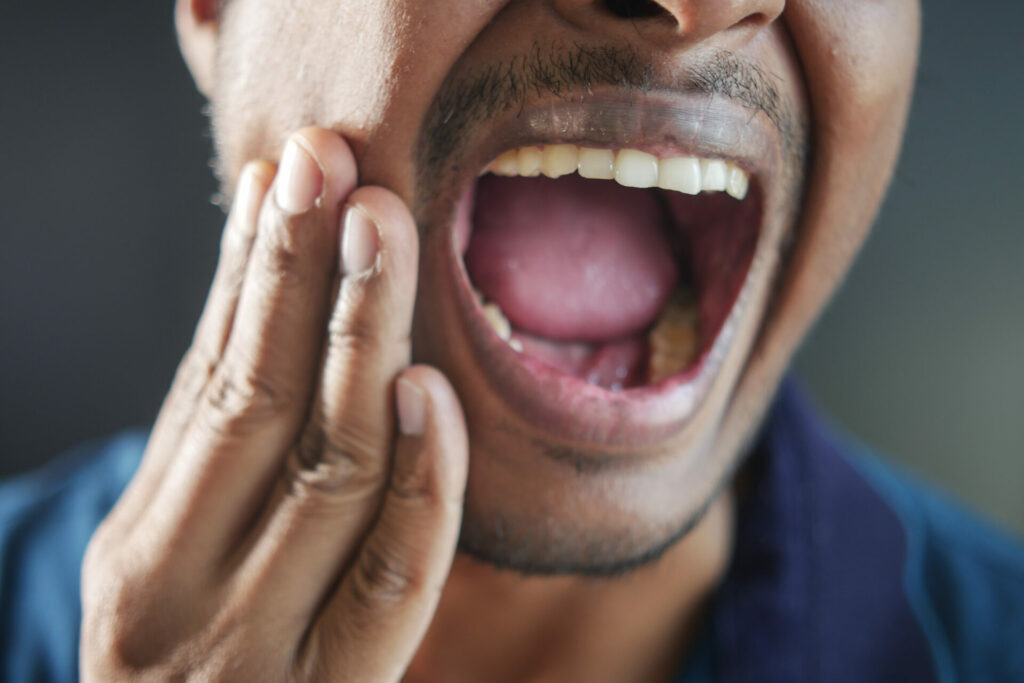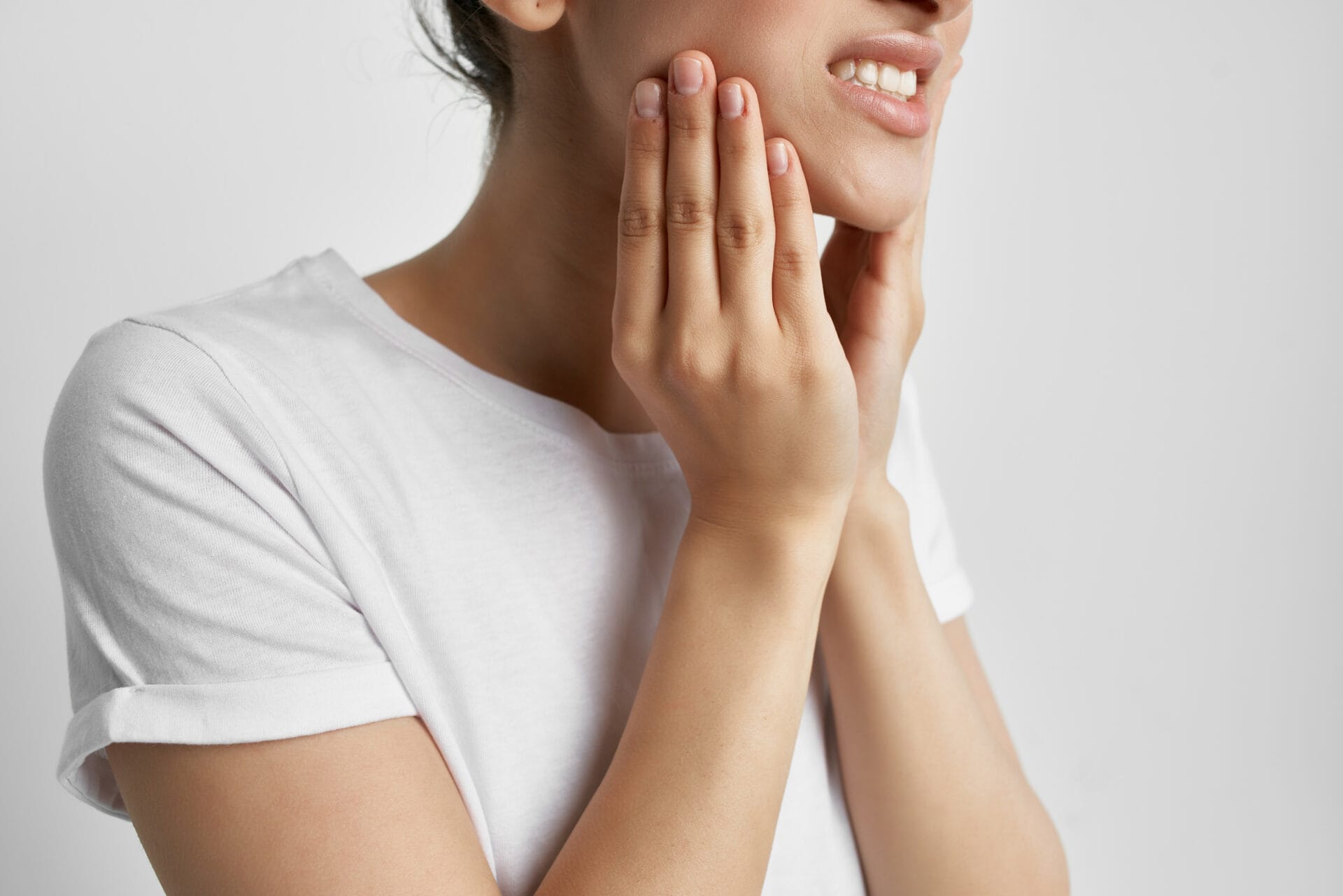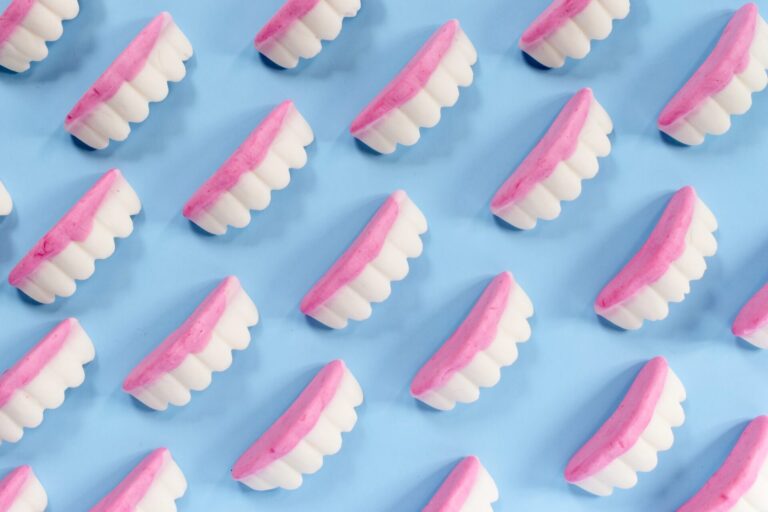Bruxism, commonly known as teeth grinding, is a widespread condition, with research showing that 85-90% of individuals grind their teeth to some extent. This often-overlooked condition can lead to serious dental issues if not addressed promptly.
Stress, a major issue in today’s fast-paced world, is a major trigger for bruxism. The pressures of daily life can manifest physically, and one of the ways our bodies cope is by clenching and grinding our teeth.
At The Village Dentist in Castle Hill, we see firsthand the impact of stress-induced bruxism on our patients’ oral health. In this article, we shed light on the connection between stress and bruxism, the effects on your dental health, and effective remedies and stress management techniques to help you protect your smile.
Understanding bruxism
Bruxism is the medical term for the habitual grinding or clenching of teeth. This condition can be classified into two main types: awake bruxism and sleep bruxism.
Awake bruxism occurs when you unconsciously clench your teeth during the day, often in response to stress, anxiety, or concentration. Sleep bruxism, on the other hand, happens during the night and is considered a sleep-related movement disorder. Both types can lead to significant dental and health issues if not properly managed.
Symptoms of bruxism
Identifying teeth grinding can be challenging as it often occurs unconsciously. However, there are several symptoms that can be indicative of its presence:
- Sore/tired jaw muscles or jaw tightness
- Facial pain
- Frequent headaches, especially upon waking
- Worn, chipped, or flattened teeth
- Increased tooth sensitivity
- Earache-like pain without an infection
- Disrupted sleep for both the sufferer and their partner
- Damage to the inside of the cheeks from chewing
If you experience any of these symptoms, it’s important to consult a dental professional for an accurate diagnosis and appropriate treatment.

The link between stress and bruxism
Stress is a common trigger for many health issues, and teeth grinding is no exception. Numerous scientific studies have established a clear link between stress and bruxism. Research shows that individuals experiencing high levels of stress are significantly more likely to grind their teeth. One study found that nearly 70% of bruxism cases are related to stress and anxiety. Additionally, statistics reveal that those who suffer from chronic stress are twice as likely to experience jaw pain and other symptoms associated with teeth grinding.
Understanding the connection between stress and bruxism is essential for managing and treating this condition effectively. Below, we explore how stress triggers bruxism, the body’s fight-or-flight response, and increased muscle tension:
How stress triggers bruxism
When individuals are stressed, they may unconsciously clench or grind their teeth as a coping mechanism. This reaction can occur both during the day (awake bruxism) and at night (sleep bruxism), leading to facial pain and a range of dental problems. Awake bruxism often happens during periods of concentration or anxiety, while sleep bruxism occurs during sleep cycles, particularly in the early stages of deep sleep. Interestingly, sleep bruxism is sometimes associated with other sleep related disorders, such as sleep apnea.
This unconscious habit is the body’s way of dealing with stress, similar to how some people bite their nails or tap their feet. Over time, this persistent clenching and teeth grinding can cause significant damage to the teeth and jaw.
The body's fight-or-flight response
When we experience stress, our bodies activate the fight-or-flight response, releasing stress hormones like adrenaline and cortisol. This response is designed to prepare us for immediate danger, sharpening our senses and readying our muscles for action. While beneficial in short bursts, frequent activation of the fight-or-flight response can lead to unintended effects on the body, such as increased muscle tension.
This muscle tension, especially in the jaw, contributes significantly to bruxism. When the muscles, including jaw muscles, become tense, it can cause individuals to grind their teeth, leading to jaw pain and other symptoms of teeth grinding. Chronic stress can result in continuous jaw tension, exacerbating the symptoms of bruxism and causing strain on the temporomandibular joint (TMJ), which connects the jaw to the skull.

Impact of bruxism on dental health
Bruxism, if left unchecked, can have serious repercussions for dental health. Both short-term and long-term effects can arise, affecting not just the teeth but overall quality of life. Below, we explore the various affects teeth grinding can have:
- Enamel wear: One of the most immediate effects of teeth grinding is the wearing down of tooth enamel. This hard outer layer of the tooth is essential for protecting against tooth decay and tooth sensitivity. When you grind your teeth, the constant friction leads to worn tooth enamel, making the teeth more vulnerable to cavities and other dental issues.
- Tooth sensitivity: As the enamel wears away, the underlying dentin becomes exposed, leading to increased tooth sensitivity. This can make consuming hot, cold, or sweet foods and drinks uncomfortable, affecting your daily life.
- Cracked or chipped teeth: The pressure exerted when you grind your teeth can cause cracks or chips in your teeth. These cracks can vary in size and severity, sometimes leading to significant tooth damage that requires extensive dental treatments to repair.
- Loose teeth: In severe bruxism cases, the constant teeth grinding can loosen teeth from their sockets, leading to mobility issues and, in extreme cases, tooth loss. This can result in the need for restorative procedures such as dental implants or dental bridges.
- TMJ disorders: The temporomandibular joint can be severely affected by bruxism. Constant grinding puts excessive strain on this joint, leading to TMJ disorders. Symptoms include jaw pain, facial pain, headaches, difficulty in jaw movement, and clicking or popping sounds when opening or closing the mouth.
Dental remedies for bruxism
Managing bruxism effectively involves a combination of dental treatments and lifestyle changes. At our Castle Hill dental practice, we offer a range of solutions tailored to address the specific needs of our patients, no matter their age. If you grind your teeth, these are some of the dental treatments available to help manage the associated symptoms:
Mouth guards and splints
One of the most common and effective treatments for bruxism is the use of a mouth guard or splint. These devices are custom-made to fit your teeth and are typically worn at night. They provide a protective barrier between your upper and lower teeth, preventing further tooth wear and damage. Mouth guards and splints also help to reduce jaw muscle tension, alleviating symptoms such as jaw pain and headaches.
Corrective dental work
In some cases, corrective dental work may be necessary to address the damage caused by bruxism. This can include procedures such as dental crowns, braces, or other orthodontic treatments. Crowns can restore the structure and function of cracked or chipped teeth, while braces can help correct misaligned bites that may contribute to teeth grinding.
Muscle relaxant injectables
For patients with severe bruxism, muscle relaxant injectables can be an effective teeth grinding treatment option. These injectables help to reduce activity in the jaw muscles, decreasing the frequency and intensity of teeth grinding. This treatment can provide significant relief from jaw pain and prevent further tooth damage.
Medication
In some cases, medication may be prescribed to help manage the symptoms of bruxism. Muscle relaxants can be taken before bedtime to reduce jaw clenching during sleep. Additionally, medications to reduce stress and anxiety, such as antidepressants or anti-anxiety medicine, can be helpful in managing the underlying causes of bruxism.

Stress management techniques
Managing stress effectively can significantly reduce bruxism. Here are some practical tips:
- Mindfulness and meditation: Practice mindfulness and meditation to promote relaxation and reduce stress.
- Physical activity and exercise: Engage in regular physical activity to alleviate tension and improve overall well-being.
- Adequate sleep and relaxation techniques: Ensure you get enough sleep and incorporate relaxation techniques like deep breathing or progressive muscle relaxation.
- Cognitive behavioural therapy (CBT): Consider CBT or other therapeutic approaches to manage stress and anxiety effectively.
- Lifestyle changes: Adopt a balanced diet and reduce intake of caffeine and alcohol to support better stress management.
Keep stress and bruxism in check
Throughout this article, we’ve explored the connection between stress and bruxism, the effects on your dental health, and the various treatments available to manage teeth grinding. Understanding how stress triggers bruxism and implementing stress management techniques can greatly reduce its impact on your oral health.
To diagnose bruxism, regular dental check-ups are key, as it can easily go unnoticed until significant tooth damage has occurred. By attending routine dental visits, your dentist can identify early signs of bruxism, provide appropriate treatments to manage the symptoms, and prevent further damage.
If you suspect that you grind your teeth or experience symptoms such as jaw pain, facial pain, or tooth sensitivity, it’s essential to seek professional help. Our team at The Village Dentist is dedicated to helping you protect your smile and improve your quality of life. Book an appointment with us today and take the first step towards better dental health and a stress-free smile!




